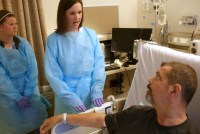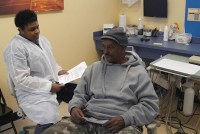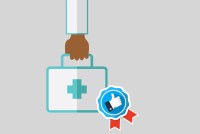Latest KFF Health News Stories
In June, California will become the fifth state to allow terminally ill patients to end their lives with prescriptions from their doctors, but getting those prescriptions will require serious effort.
FAQ: Medicare Lays Out Plans For Changing Doctors’ Pay
The effort, which will replace a controversial reimbursement schedule that began in 1997, is designed to move away from paying for quantity of services and focus instead on quality.
Three Hospitals Hope To Spark A Reduction In Surgeries By Inexperienced Doctors
The prestigious facilities are seeking to improve patient safety by getting surgeons and hospitals to pledge to meet minimum thresholds for 10 high-risk procedures.
Administration Says New Rules For Medicaid Plans Will Improve Service For Enrollees
Private insurers that administer Medicaid for the poor also face limits on profits and requirements to provide sufficient doctors.
At Teaching Hospitals, Aggressive Screening May Lead To Medicare Penalties
Nearly half of academic medical centers will be penalized by the government this year for high rates of infections and other avoidable complications, but the hospitals say it shows they screen better for problems.
Rise In Oncologists Working For Hospitals Spurs Higher Chemo Costs: Study
Researchers found that the facility fees hospitals and their clinics routinely add to the bill helps drive the price increases.
Most Doctors Unsure How To Discuss End-of-Life Care, Survey Says
They recognize the responsibility, but some may need training.
Hospital Software Often Doesn’t Flag Unsafe Drug Prescriptions, Report Finds
A survey conducted by the Leapfrog Group finds that though many hospitals have computer-based medication systems in place to protect against errors, many still fall short in highlighting possible problems.
Patients’ Assessment Of Their Health Is Gaining Importance In Treatment
As medicine moves to a patient-centered model, doctors and other health providers are slowly adding patients’ self-reports to the other tests and exams they use to determine care.
UnitedHealth Tries Boutique-Style Health Plan
Harken Health, a new UnitedHealthcare subsidiary, offers members free unlimited doctor visits and health coaches at 10 clinics in Chicago and Atlanta.
Study: Primary Care Doctors Often Don’t Help Patients Manage Depression
Physicians were less likely to use “care management processes” with patients who have depression than with those who had other chronic conditions, the researchers found.
In Conservative Indiana, Medicaid Expansion Makes Poorest Pay
The novel expansion model is testing how far a state can go under Obamacare in making poor people share responsibility for the cost of health care.
Some experts say this opportunity has not been realized, but advocates and policymakers are focusing on fixes that would make the digital versions of end-of-life planning documents easy for health professionals to locate.
California Insurance Marketplace Wants To Kick Out Poor-Performing Hospitals
Providers and insurers are balking at a Covered California proposal to eject hospitals with inordinately high costs and low quality from its networks.
Doctors Ponder Delicate Talks As Medicare Pays For End-Of-Life Counsel
Physicians can now bill Medicare $86 for up to 30 minutes of counseling given to patients about end-of-life planning, but many doctors may need training to have those talks.
Managing Depression A Challenge In Primary Care Settings, Study Finds
Primary care physicians see many patients with depression. New research finds they continue to struggle to apply the treatment strategies used for other chronic illnesses.
Medicine’s Power Couples: A Challenge In Recruiting Physicians To Rural Areas
A research letter published in JAMA suggests that physicians increasingly marry people who match them in terms of educational levels and career pursuits, making it more difficult to attract them to small-town practices.
Insurers And Medicare Agree On Measures Tracking Doctors’ Quality
The first set of measures focus on seven types of care, including for hearts and cancer. The metrics will be integrated into formulas that determine physicians’ pay.
Hospitals Employ Email ‘Empathy’ To Help Doctors And Patients Keep In Touch
A better way to communicate with patients and track their progress?
Study: Doctors’ Texts Can Prod Patients To Take Drugs, But Questions Linger
In an analysis published Monday in JAMA Internal Medicine, researchers found that text message reminders help patients do better when it comes to taking their medicines. But questions about the specific ways to make the most of this strategy remain.


























